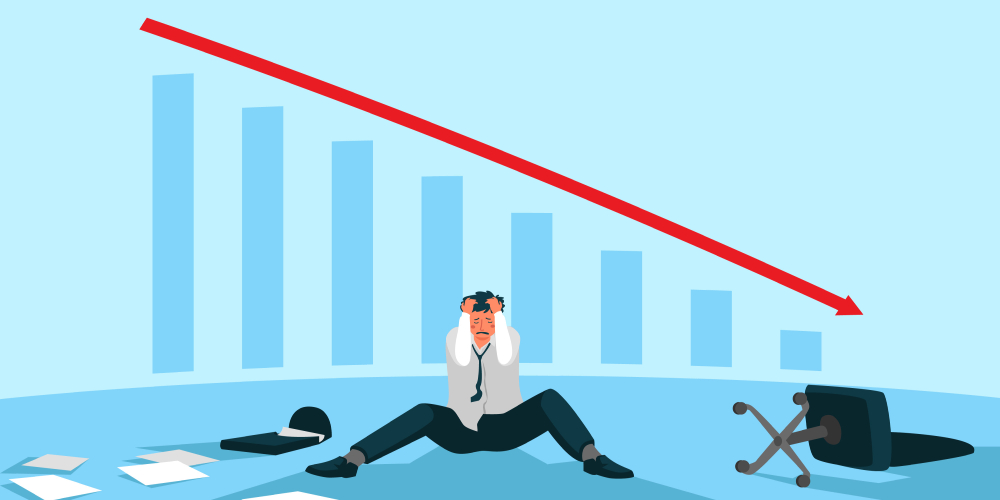
The Financial Impact of Smoking and Vaping
Have you ever stopped to consider the real cost of smoking or vaping? Sure, you know it’s not cheap, but the actual numbers might shock you. Smoking and vaping are habits that quietly drain your wallet, adding up to substantial amounts over time. Imagine what you could do with that extra cash—take a dream vacation, buy a new gadget, or boost your savings. In this blog, we’re diving deep into the financial impact of smoking and vaping. We’ll break down the costs, reveal some startling statistics, and help you understand just how much these habits might be costing you each year. So, let’s uncover the true price of smoking and vaping and explore how quitting could lead to big savings for you.
The Cost of Smoking: A Daily Drain on Your Wallet
Let’s start by examining the cost of smoking. On the surface, it might not seem like a big deal to buy a pack of cigarettes now and then. However, if you are a regular smoker, those packs add up quickly, leading to substantial yearly expenses.
Breaking Down the Numbers
The average cost of a pack of cigarettes varies globally. For example:
In Australia, a pack costs about AUD 35 (approximately USD 27).
In Europe, a pack costs about EUROS 14
In the United Kingdom, a pack costs around GBP 12 (approximately USD 16).
In the United States, the average cost is about USD 6.28, though this can exceed USD 12 in places like New York City.
Let’s consider the cost for an average smoker who buys a pack a day:
Daily cost: USD 6.28
Weekly cost: USD 6.28 x 7 = USD 43.96
Monthly cost: USD 6.28 x 30 = USD 188.40
Yearly cost: USD 6.28 x 365 = USD 2,292.20
The Hidden Costs of Smoking
When you smoke, you’re not just spending money on the cigarettes themselves. There are numerous hidden costs associated with smoking that can add to the financial burden.
Health Care Expenses
Smoking is linked to numerous health problems which include heart disease, lung cancer, and respiratory issues. Treating these conditions can be incredibly expensive. Globally, the World Health Organization (WHO) estimates that the economic costs of smoking amount to over USD 1.4 trillion in healthcare expenses and lost productivity.
Higher Insurance Premiums
Smokers often face higher premiums for health and life insurance. In many countries, insurance companies charge up to 50% more for smokers. This can add hundreds or even thousands of dollars to your annual expenses.
Lost Productivity
Smoking can also impact your productivity at work. Smokers are more likely to take sick days and are less productive when they are at work due to the need for frequent smoke breaks. In the United States alone, smoking-related productivity losses cost the economy over USD 156 billion each year.
The Cost of Vaping: Not as Cheap as You Think
Many people switch to vaping thinking it will save them money. While it might be cheaper than smoking, it’s still not without significant costs.
Initial Setup Costs
First, there’s the cost of the vaping device itself. A good quality vape can cost anywhere from USD 30 to USD 100, with more advanced models costing even more. You’ll also need to buy e-liquids, which can cost about USD 20 for a 30ml bottle.
Ongoing Expenses
Let’s break down the ongoing costs for a moderate vaper who uses about 10ml of e-liquid per week:
Weekly cost of e-liquid: USD 6.67 (based on USD 20 per 30ml)
Monthly cost of e-liquid: USD 6.67 x 4 = USD 26.68
The yearly cost of e-liquid: USD 26.68 x 12 = USD 320.16
This doesn’t include the cost of replacement coils, batteries, and other accessories. Let’s add another USD 100 per year for these supplies, bringing the total annual cost to around USD 420.
Comparing Smoking and Vaping
If you’re spending USD 2,292.20 per year on smoking versus USD 420 per year on vaping, vaping certainly seems like the cheaper option. However, it’s still a significant expense, and the long-term health effects of vaping are not yet fully understood.
The Long-Term Financial Impact
Beyond the day-to-day costs, smoking and vaping can have long-term financial consequences that affect your overall financial health.
Retirement Savings
Imagine if, instead of spending USD 2,292.20 per year on cigarettes, you invested that money. Over 20 years, with an average annual return of 7%, you could potentially have over USD 100,000 saved for retirement. Even the USD 420 per year spent on vaping could grow to over USD 18,000 in the same period.
Health Care Savings
By quitting smoking or vaping, you’re also likely to save on healthcare costs. Non-smokers and non-vapers generally have fewer health problems and lower medical expenses. This can result in significant savings over your lifetime.
How to Reduce Your Costs
If you’re looking to cut back on your spending, quitting smoking or vaping is one of the best ways to do it. Here are a few tips to help you get started:
Seek Support
Quitting smoking or vaping is not easy, but you don’t have to do it alone. You can always seek support from your friends, and family, or join a support group. Many people find that having a support system in place makes the process much easier.
Use Nicotine Replacement Therapy (NRT)
NRT products like patches, gum, and lozenges can help you manage withdrawal symptoms and reduce your cravings. These products are often covered by insurance, making them a cost-effective option.
Find Healthy Alternatives
Look for healthy alternatives to smoking or vaping, such as exercise, meditation, or a new hobby. Not only will this help you quit, but it can also improve your overall well-being.
Calculate Your Savings
Sometimes, seeing the numbers can be a great motivator. Calculate how much money you’ll save by quitting and think about what you could do with that extra cash. Whether it’s a vacation, a new gadget, or extra savings for retirement, having a goal in mind can help keep you on track.
The financial impact of smoking and vaping is significant, but it’s often overlooked. By understanding the true cost of these habits, you can make more informed decisions about your health and your finances. Whether you’re a smoker, a vaper, or someone looking to quit, knowing the financial stakes can be a powerful motivator.
Quitting isn’t easy, but the benefits go beyond just your wallet. You’ll improve your health, reduce your risk of serious illness, and potentially add years to your life. So, take the first step today. Calculate how much you’re spending, set a goal, and seek support. Your future self will thank you.




